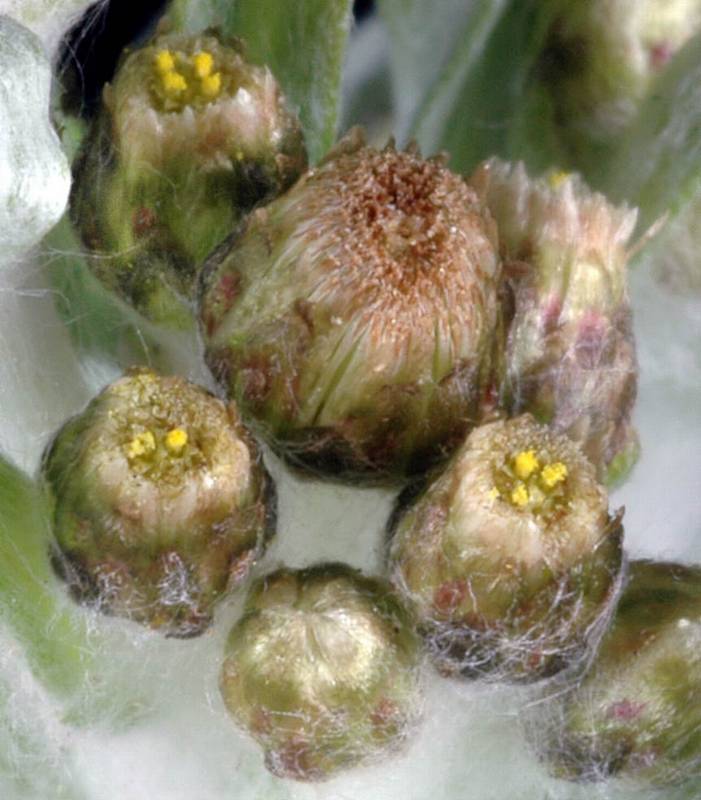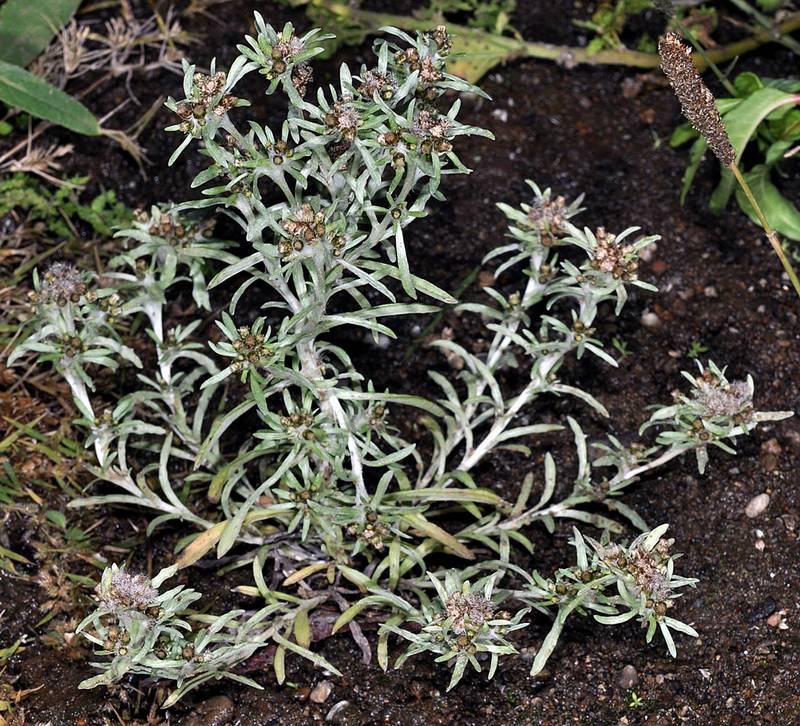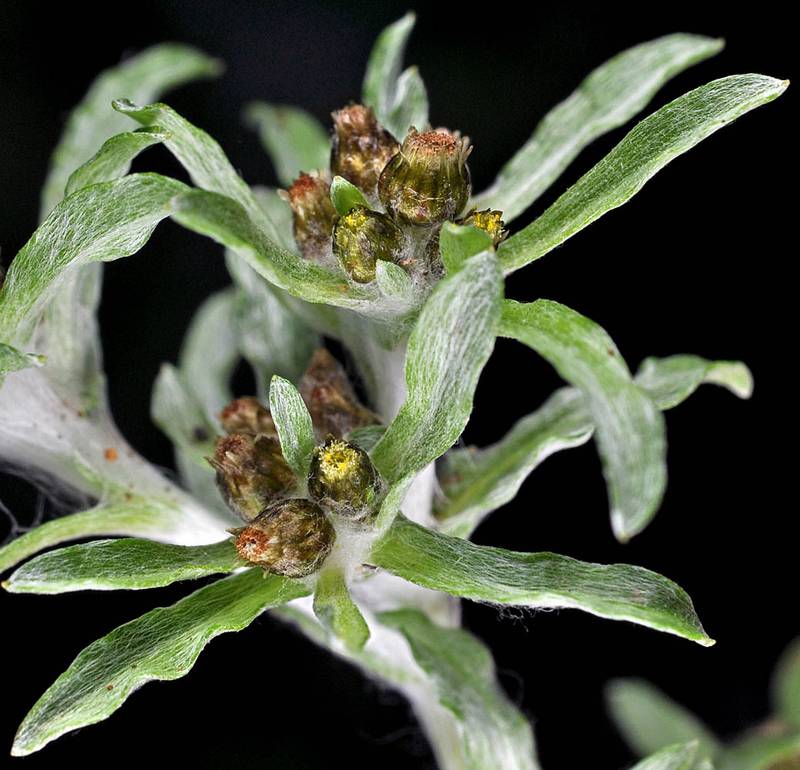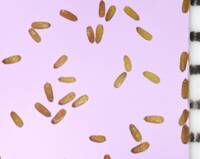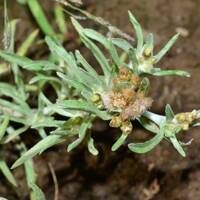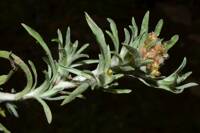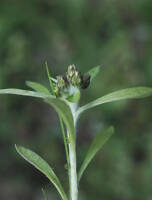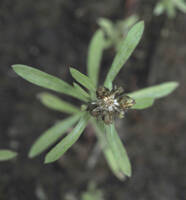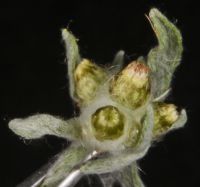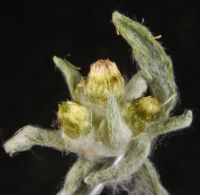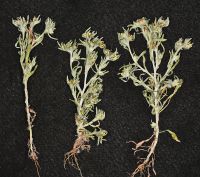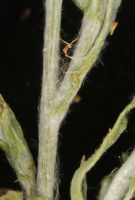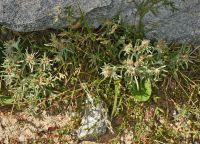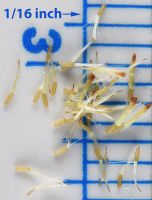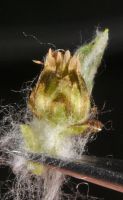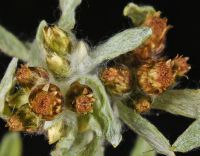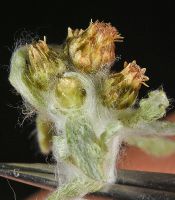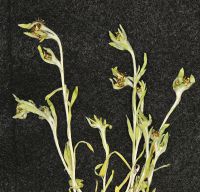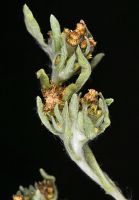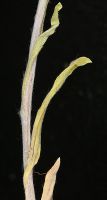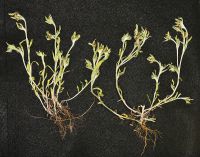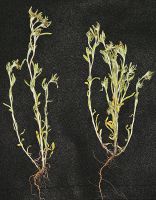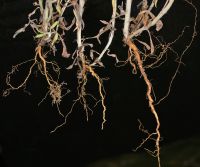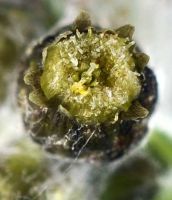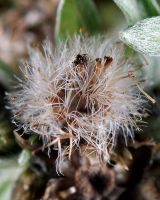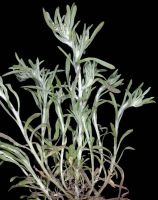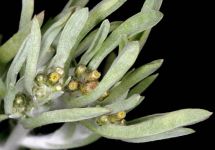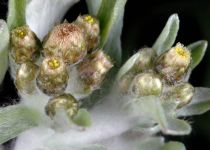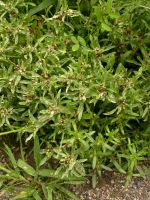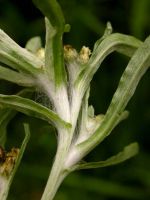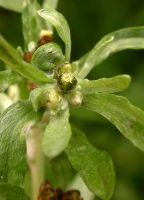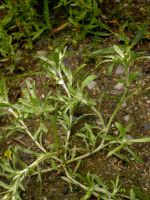Distribution: Occurring chiefly west of the Cascades crest in Washington; Alaska to Oregon, east across the northern Rocky Mountains and northern Great Plains to eastern North America.
Habitat: Lake and pond margins, ephemeral pools, and other wet areas, sometimes where disturbed, at low to middle elevations.
Flowers: July-October
Origin: Introduced
Growth Duration: Annual
Conservation Status: Not of concern
Pollination: Bees, beetles, wasps
Annual, usually much branched, 3-15 cm. tall, covered throughout with close, white, woolly hairs.
Leaves linear to linear-oblanceolate, entire, 1-3.5 mm. long and 2-10 mm. wide.
Heads in small, leafy-bracted, tight clusters, in the leaf axils and at the ends of the branches; involucre 3-3.5 mm. high, woolly below, the bracts dark brown or greenish with papery tips; corollas all tubular, the outer ones numerous, slender and pistillate, the few inner ones coarser and perfect, all whitish; receptacle naked; pappus of capillary bristles, distinct to the base.
Achenes small, nerveless.
Publication: Sp. Pl. 2: 856. 1753.
PNW Herbaria: Specimen records of Gnaphalium uliginosum in the Consortium of Pacific Northwest Herbaria database
WA Flora Checklist: Gnaphalium uliginosum checklist entry
OregonFlora: Gnaphalium uliginosum information
E-Flora BC: Gnaphalium uliginosum atlas page
CalPhotos: Gnaphalium uliginosum photos

